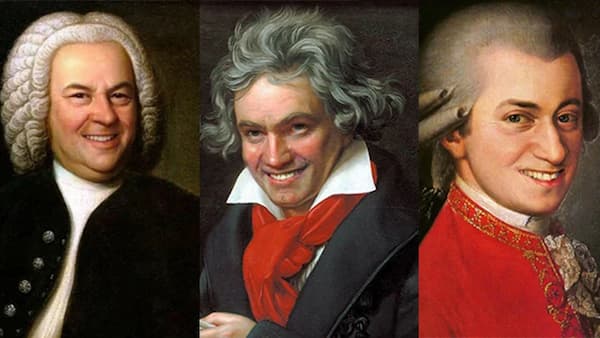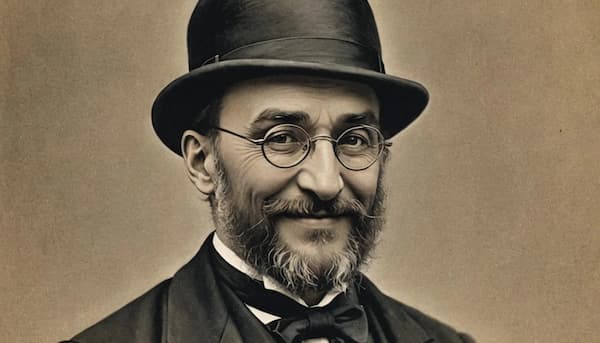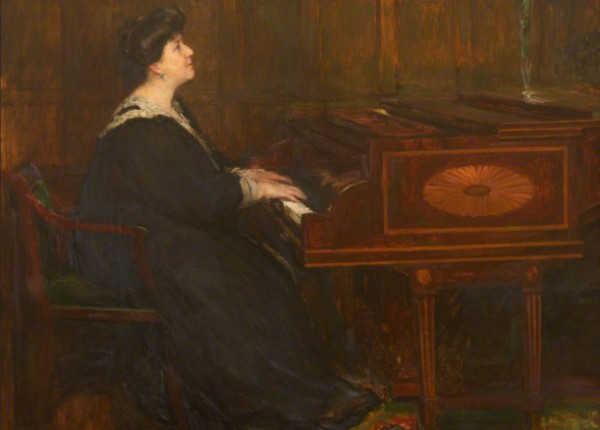On the first Sunday in May, we celebrate World Laughter Day. It all started in a park in Mumbai in 1998 when Dr. Madan Kataria gathered hundreds of people in a laughter yoga movement.
It started with some fake-laughing until the giggles turned real. It was gloriously absurd as strangers cackled like hyenas, some wiping tears of laughter, all because someone pretended to laugh at a non-existent joke.
Laughing is highly infectious, and moments of organised silliness remind us that laughter can cut through the daily grind. And while classical music might seem like a stuffy museum of serious faces, composers have given us plenty of giggles over the centuries.
Mozart Joke
Wolfgang Amadeus Mozart: A Musical Joke, K. 522 (excerpt)
Mozart’s Divertimento for Two Horns and Strings in F Major, K. 522, is like the 18th-century equivalent of a musical prank call. It is a deliberate trainwreck of bad composing, written in 1787 to poke fun at every hack and mediocre musician. To be sure, Mozart throws in every compositional cliché he can think of.

© wfmt.com
We hear repetitive phrases and off-key surprises, with the strings playing along like they forgot how to read music. The horns honk at the worst possible moments and in silly keys, and the transitions are simply awkward. Still, it’s catchy and brilliant. It’s the kind of piece that makes you laugh out loud. Are you laughing with Mozart, or is he secretly laughing at you?
Satie Joke

Erik Satie
Erik Satie: 3 Morceaux en forme de poire (Alain Planès, piano; François Pinel, piano)
The French musical maverick Erik Satie gave the world his “Three Pieces in the Shape of a Pear” in 1903. This piano duet isn’t just a composition, it’s a wacky response to stuffy critics who whined that his music lacked form. The title alone is enough to make you laugh, and in fact, it’s actually seven pieces and not three.
The music itself is a delightful mess of quirky melodies, wonky rhythms, and moments when the piano is daydreaming about being in a circus. Satie throws in some playful titles and instructions, like “play with a very profound gentleness,” and “Prolongation of the Same.” The pieces meander through dreamy waltzes like a conversation between friends that keeps changing topics. We can’t help but laugh at such sheer silliness.
Alkan Joke
Charles-Valentin Alkan: Marcia funebre sulla morte d’un papagallo (Metropolitan Opera Chorus; Alfred Genovese, oboe; Henry Schuman, oboe; Leonard Arner, oboe; Loren Glickman, bassoon; Raymond Lewenthal, cond.)
The reclusive piano wizard Charles-Valentin Alkan unleashed his “Funeral March on the Death of a Parrot” in 1858. This piece is exactly what it sounds like. It’s a mock-serious dirge for a dearly departed parrot, complete with all the pomp and circumstance you might expect for a fallen feathered friend.
It’s pure musical satire with a solemn and plodding rhythm that sounds absurdly grandiose. Alkan piles on the melodrama with heavy chords and exaggerated tempos. Can you hear the quirky little flourishes and dynamic shifts? It’s like Alkan is snickering behind the music and daring you to keep a straight face. This is musical trolling at its finest, and somewhere, the parrot’s ghost is squawking with glee.

Haydn Joke
Franz Joseph Haydn was basically the original musical prankster, and his String Quartet Op. 33, No. 2 is nicknamed “The Joke” for very good reasons. This piece shows Haydn at his most impish as he lures listeners into a false sense of security with its chipper melodies and polite classical vibes.
In the finale, Haydn pulls out all the stops. Just when you think the music is wrapping up with a tidy little bow, Haydn throws in a cheeky pause, and when everybody gets ready to clap, he restarts the music with a cheeky encore. I bet he had some stuffy aristocrats looking like fools. Pure, mischievous and utterly funny genius!
As we celebrate “World Laughter Day,” let’s raise a glass to the musical jesters who turned stuffy concert halls into serious giggle celebrations. Let’s tip our hats to the genius composers who weave hilarity into their harmonies, proving that music can spark laughter around the world.
For more of the best in classical music, sign up for our E-Newsletter



